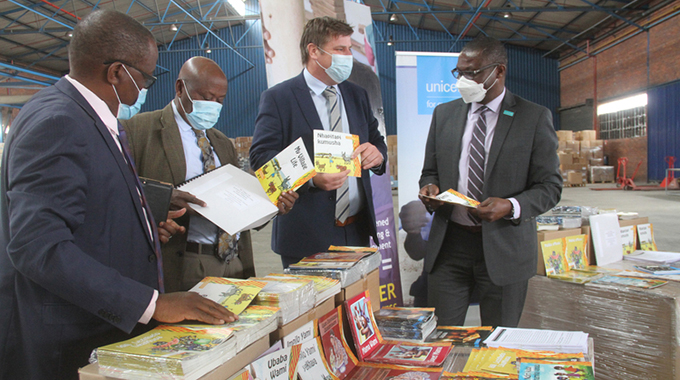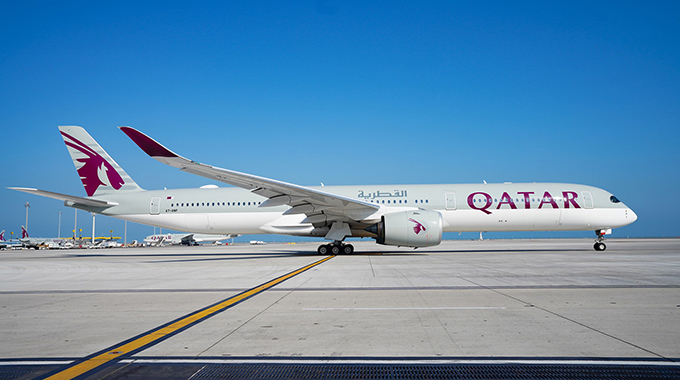Unicef helps rural children catch up with 200 000 books

Faith Katete
Herald Reporter
A batch of 200 000 early learning story books, will be sent to remote areas as part of the catch-up packages designed to redress the gap left by Covid-19 interruptions of regular school lessons.
Unicef has partnered the Government in the programme.
Following the outbreak of Covid-19 last year Government introduced e learning, television and radio lessons but more resources were needed, especially for disadvantaged families in some remote areas.
In Harare yesterday, Primary and Secondary Education Minister Ambassador Cain Mathema said the major target was these disadvantaged communities. The story books distribution constitutes part of the Ministry’s catch up packages that are meant to redress the lost learning time during the prolonged Covid-19 induced school closure.
“Ministry has embraced blended learning or hybrid learning where learning is now facilitated both in class and outside the classroom including the home. Learning now must take place everywhere and the availability of teaching and learning materials in the hands of the learner will ensure that they can cover good ground even at home.
“The hard copies are particularly useful to learners who have long challenges in accessing digital platforms,” he said.
“The story books content is culturally and developmentally appropriate for children in school and those yet to enrol in our schools and this trajectory will enhance school readiness and a smooth transition of children from home in to school environment.”
“The use of the story books model and initiative is in line with the ministry’s focus on community engagement and parenting strategies whose core objective is to enhance school readiness.
“Families can use them individually or converge at a community learning centre, where a community volunteer will facilitate play way learning using available community resources inclusive of the story books,” he said.
The Minister said 200 000 copies of the story books will be distributed to all communities especially the disadvantaged ones.
“For them to be inclusive, the story books have been translated into three languages of Ndebele, Shona and English and uploaded on the internet.
“Sign language and Braille books are under development to ensure an inclusive coverage for all children. The books will be translated into the other national languages,” he said.
UNICEF Zimbabwe country representative, Dr Tajudeen Oyewale was confident that these books will contribute to the development of foundational literacy of young children.
Dr Oyewale said the books will also help spark children creativity and imagination, foster their intellectual development, introduce them to new people, places and ideas, build their vocabulary and strengthen their use of language as well as clarify difficult situations and troublesome feelings
Three titles have been printed in Braille and are currently being distributed to children with visual impairments and they are also being developed as animations with sign language for hearing impaired children adding that these innovations are to ensure that no child is left behind.
“We have the book called “Two great friends: Runako and Tino” is about true friendship, love and acceptance of child with albinism who is also like any other child.”
“Another called “Baba and me” shows how Tariro is proud of Baba. Her Baba can do almost everything in his wheelchair. “My village life” shows the rich beauty of rural life in Zimbabwe through a large, extended family, storytelling, food, friends and the animals. There are many more he said,” he said.
Dr Oyewale said these books have also been developed as talking audio books and have now been uploaded onto the Internet of Good Things and the Learning Passport and can be shared and viewed through mobile devices.
Dr Oyewale said their hope is to continue increasing the access of young children and their families to the books through a phased approach ensuring that the most vulnerable children will benefit from them.
“Access alone is not enough to make a difference in children’s lives however, it is the kind of content available to them that will make a difference.”











Comments